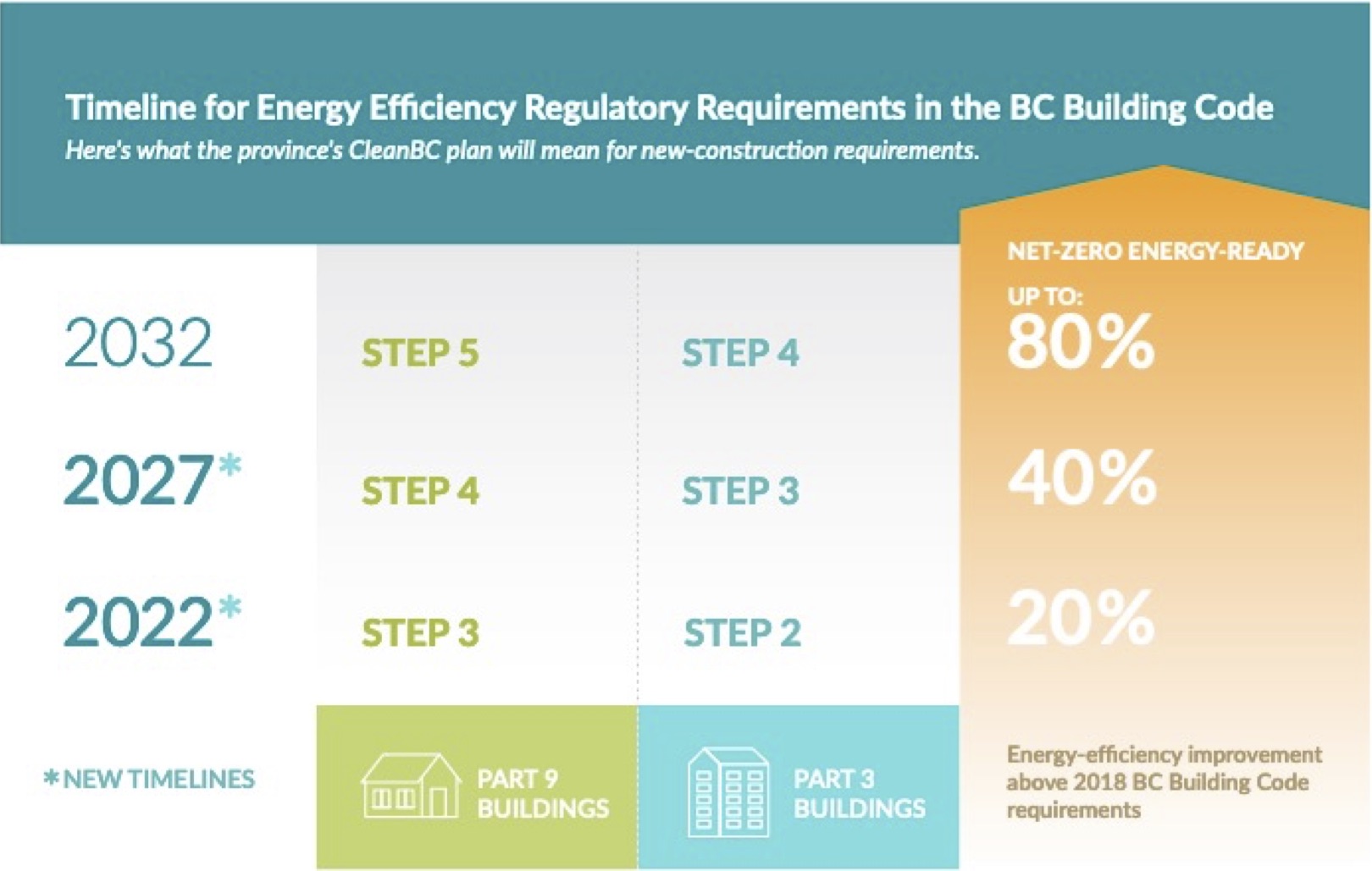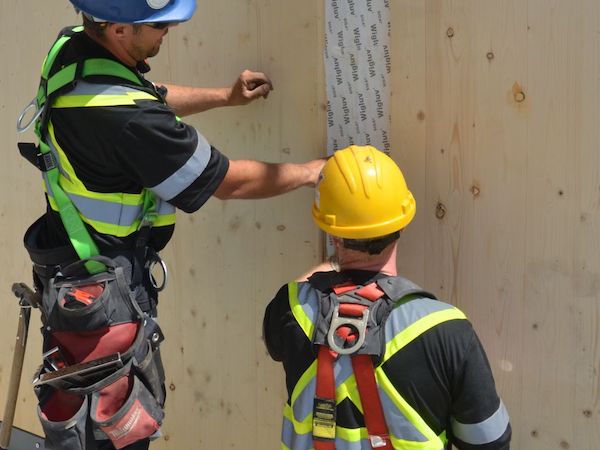Getting to Net Zero – is the building industry ready?

Introducing BC’s Construction Cleantech Ecosystem
September 17, 2021
B.C. construction becoming a high-tech industry
October 15, 2021Recognizing that buildings play an important role in the fight against climate change, BC has been leading the way in the development of policies and regulations that chart a course to net zero energy buildings by 2032.
The BC Energy Step Code accelerates the adoption of net zero energy practices in new large residential and commercial projects (classified under Part 3 of the BC Building Code) as well as single family houses and small commercial structures (Part 9). It serves as a “roadmap” to industry by setting out forthcoming updates to the BC Building Code and by giving educators and local governments a clear long-range view of the technical expectations.

The next Building Code update is anticipated in 2022 which will require projects to be 20% more energy efficient than they are today. Is BC’s construction workforce prepared?
To understand the state of readiness of key construction professions (developers, architects, engineers, energy modellers and advisors, builders, trades and building officials), Scius led the development of the 2021 BC Energy Step Code Industry Capacity Study. With assistance from The Delphi Group and Omicron and input from over fifty education providers, associations and NGOs, we looked at how eighteen key professions are doing in gearing up for the Energy Step Code and where knowledge gaps exist.
BC has one of the most “climate-savvy” construction sectors in Canada, there are challenges ahead. BC’s construction workforce is aging. An estimated 22% of BC’s construction labour force is expected to retire by 2030 leaving an “experience vacuum” whereby young workers might have not acquired sufficient practical experience (specifically of the type that comes from time in the field solving constructability issues) to design and construction complex projects – irrespective of the level of energy efficiency required.
As the Energy Step Code ratchets down to Net Zero over the next decade, construction workers need to embrace new enabling practices such as digital tools, team integration and collaboration, new trade relationships and responsibilities, and, possibly, new forms of project delivery.
The 2021 BC Energy Step Code Industry Capacity Study was funded by BC Hydro and Fortis BC and governed by a task group set up by the BC Energy Step Code Council. Additional resources include:
A matrix summarizing the state of readiness of eighteen key professions and relevant education resources (Excel)
A presentation about the study




